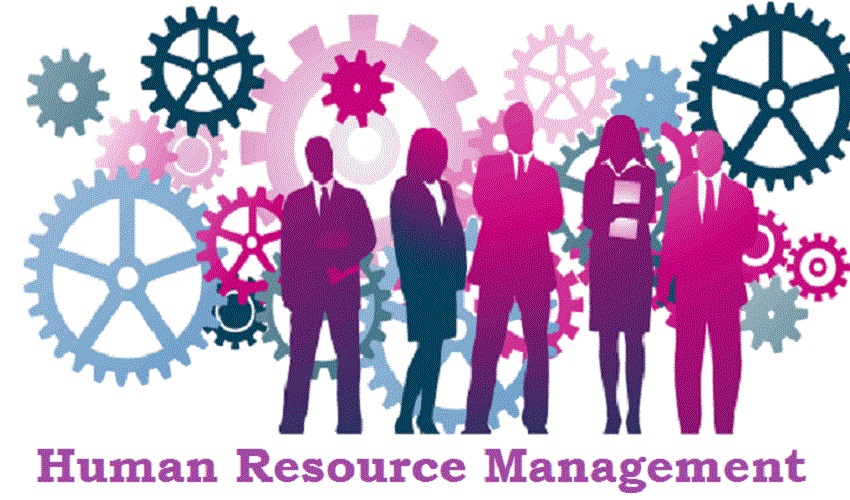Human Resource Management is a modern approach to managing people at the workplace to achieve better performance.
HR management plays a vital role in maintaining teamwork in an organization and helps bridge the gap between employee performance and the strategic goals of the organization.

Objectives and Importance of Human Resource Management
What is Human Resource Management?
Human Resource Management (HRM) is a management function concerned with hiring, training, acquisition, development, compensation, motivation, communication, and administration.
Human resource management can be considered one of the most important administrative processes in the organization, as it is concerned with the human element that carries out its activities and all its projects.
HR management has a major role in achieving the goals, noting that it is an organizational process that deals with matters related to individuals working in the organization, such as their selection, appointment, training, and other matters related to work affairs, in addition to other dimensions that result from their lives.
The HR manager needs to adapt and escape from the classroom or integrate it with technology using a Learning Management System (LMS).
A learning management system can help you supervise employee training, plan and manage training seminars, assess employee skills, manage conflict resolution, and improve team efficiency and productivity.
Human resource management is concerned with providing human resources, seeking to develop their own skills, and helping them achieve performance at distinct levels.
Human resource management also seeks to reach a balance between the resources and the needs of the employees in the facility and is also concerned with achieving all the foundations of justice among the workforce.
This job is not performed only by relying on people specialized in managing human resources, but it can also be applied through the direct officials of human resources.
The specialists contribute to providing advice and assistance to ensure harmony between the various activities.
Objectives of Human Resource Management
Human resources management (HRM) seeks to achieve the greatest possible level of efficiency in the performance of employees in the organization or institution.
The primary goals of human resource management are to ensure the availability of a competent and willing workforce in the organization. The main objectives of HRM may include:
Organizational goals: The goals of the organization or institution may include the following:
- Achieving effectiveness in the institution.
- Achieving balance and homogeneity.
- Ensure the stability of work.
- Developing and improving the skills of individual employees.
- Promoting employee affiliation with the organization.
Individual goals: Goals for individual employees may include:
- Providing new job opportunities.
- Establishing good and positive working conditions.
- Achieving fairness in the distribution of salaries.
- Supporting individuals’ progress and career development.
- Providing health insurance services.
Common goals between staff and management: The general objectives are to maintain the continuous effective performance of the institution by relying on human resources.
Having common goals gives management and employees something to work together to achieve success in their duties.
Sub-goals: Sub-goals are small steps towards achieving an overall goal. Sub-goals help to reach the common goals and include the following:
- Promoting coordination between available jobs and the people who make up appropriate human resources.
- Supporting development and qualification skills.
- Always applying performance appraisal.
- Studying the employees’ future career path.
The Importance of Human Resources Management
Human resources management is considered one of the important administrative departments in various bodies and business organizations, and its importance is summarized according to the following points:
HRM provides human resources with various and appropriate qualifications by relying on the best management that contributes to the development of production in quality and quantity.
HRM provides all the tools and means for individual employees by preparing a set of training programs, and providing wages and incentives that support the best performance and increase the productivity rate.
HRM enhances coordination among the various administrative units and the tasks of individual employees by activating the role of discussion with the executive management, as it is concerned with activities related to all individuals.
HRM helps to discover problems and difficulties related to individuals, which negatively affect the effectiveness of the organization, and it also helps managers to manage employee issues and solve them through advice and guidance.
HRM provides support to executive directors in order to achieve the goals of the organization.
HRM contributes to the study of all organizational and effectiveness competencies and indicators used in measuring the efficiency of performance, the rates of accidents that affect the work, and other indicators and averages.
HRM provides an appropriate organizational climate for work, by motivating employees, which will positively affect their job satisfaction, and thus increase productivity.
HRM pays attention to achieving the organization’s strategic objectives, by making use of the competencies present in it.
HRM helps in training employees and achieving their job stability, as well as wages and salaries, to ensure increased productivity.
HRM helps save high costs on the organization, which employees may incur if they are suspended from work, or if they are not granted promotions or bonuses.
HRM helps achieve belonging to the human element, by setting up a fair system of wages, incentives, and taking care of human relations in the organization.
HRM helps achieve the highest possible productivity through qualitative and quantitative planning of the human resources needed by the organization.
HRM helps maintain work ethics, paying attention to behavioral policies, and opening the field for communication between management and workers.








